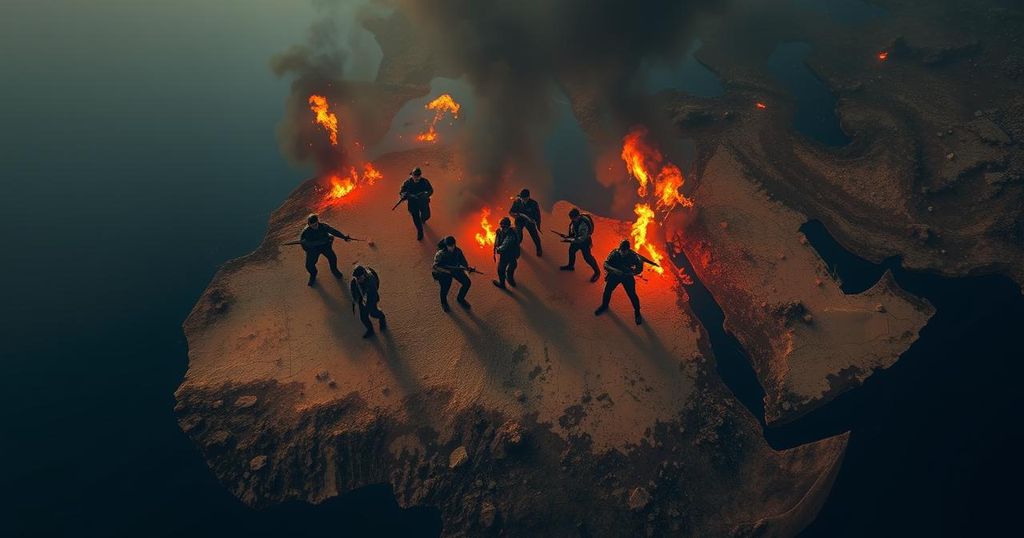Discontent Mounts Against Military Juntas in the Sahel Region
Military juntas in Mali, Burkina Faso, and Niger face rising discontent as public support wavers due to failure to fulfill promises and violent tactics of Russian mercenaries. An investigation reveals dire living conditions, a crackdown on dissent, and deteriorating relations with former colonial powers, signifying a critical shift in regional sentiment.
Recent developments in the Sahel region, particularly in Mali, Burkina Faso, and Niger, reveal a growing discontent with military juntas that seized power promising to combat terrorism and enhance the socio-economic conditions for their populations. Following the disruptive coups between 2021 and 2023, these juntas accused previous civilian administrations of collusion with France, their former colonizer, primarily in the exploitation of natural resources. However, as the months progressed, public support for these regimes has diminished significantly due to unfulfilled promises and the violent strategies employed by Russian mercenaries, notably the Wagner group. Investigative efforts led by ZAM, a Dutch media platform, have documented escalating civilian grievances in these nations. Their report titled “Hotel Kremlin” highlighted the dire living conditions amid frequent power outages and civil unrest. One of the undercover journalists, Malick Sadibou Coulibaly, articulated the situation in Mali by saying, “It is 7 p.m. Everything is dark here. The lights are out due to almost continuous power cuts.” Although there was initial optimism following the replacement of Western-backed governments, these expectations have turned to hopelessness as evidence of rising casualties mounts. On July 6, military regimes formed the Alliance of Sahel States to counter sanctions imposed by the Economic Community of West African States (ECOWAS) and solidify regional defense and trade ties. This approach reflects an increasing pivot towards Russia and a notable distancing from France. However, the anticipated economic benefits remain elusive, as demonstrated by the stark wealth disparity visible, particularly favoring military officials such as Colonel Sadio Camara, amid widespread struggles for survival among ordinary citizens. Moreover, the investigation uncovered severe crackdowns on dissent where opposition voices, civil society entities, and the press face censorship and intimidation. Algeria’s ruling government has reportedly employed abductions and enforced disappearances to suppress opposition. In Mali, a ban on political party media coverage has further exacerbated the already confined political discourse. Additionally, allegations of human rights violations against Russian paramilitary forces have surfaced, further complicating the complex landscape of military governance in the Sahel.
The Sahel region, which encompasses Mali, Burkina Faso, and Niger, has faced increasing instability due to repeated military coups from 2021 to 2023, driven partly by dissatisfaction with perceived corruption and ineffectiveness of previous governments. The rise of military juntas has been accompanied by a wave of anti-French sentiment, as many citizens believe their former colonizer failed to support local governments adequately in combating terrorism. The introduction of Russian mercenaries, specifically the Wagner group, has further complicated the situation, as their presence has been linked to rising violence and human rights abuses, leading to a gradual erosion of public trust in these new regimes.
The situation in the Sahel signifies a critical juncture as military juntas grapple with waning public support amid escalating violence and unmet expectations. The recent investigative reports point to growing unrest as citizens, initially hopeful for transformative change, face harsh realities under military rule. These findings highlight a broader narrative of discontent that may prompt shifts in governance and international relations in the region as local populations seek accountability and improved conditions.
Original Source: www.dw.com




Post Comment